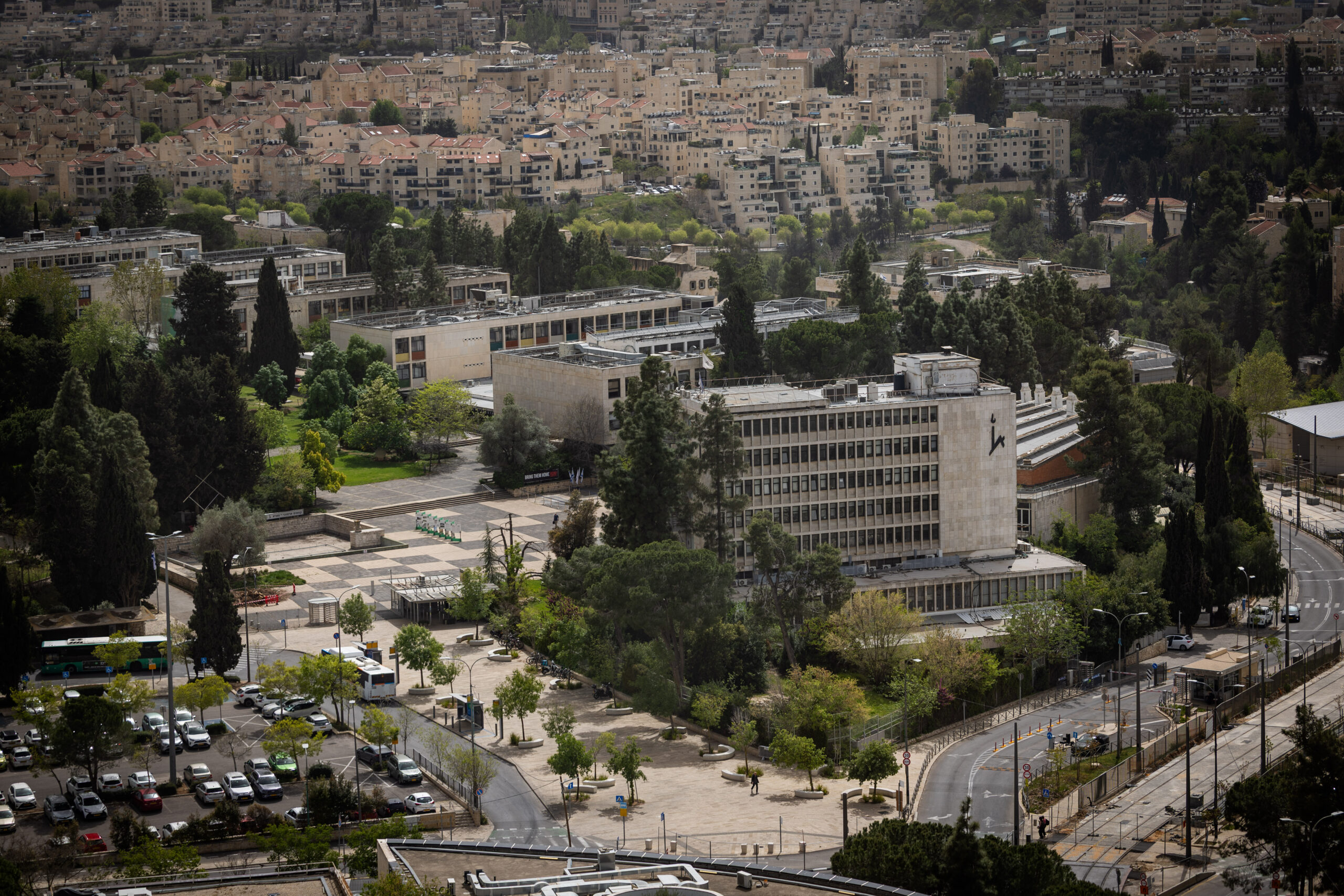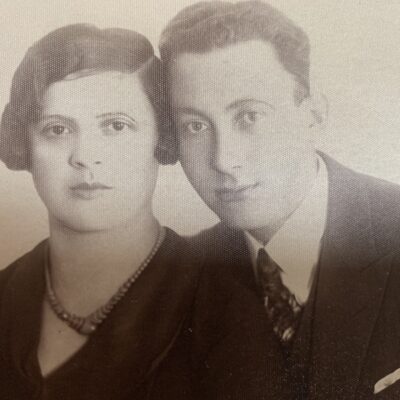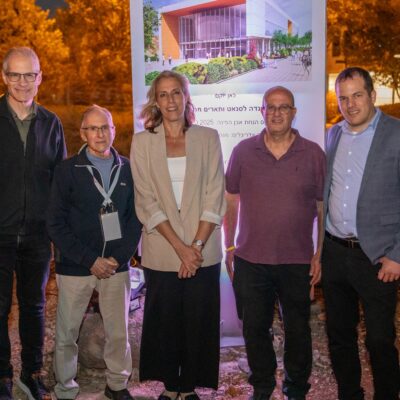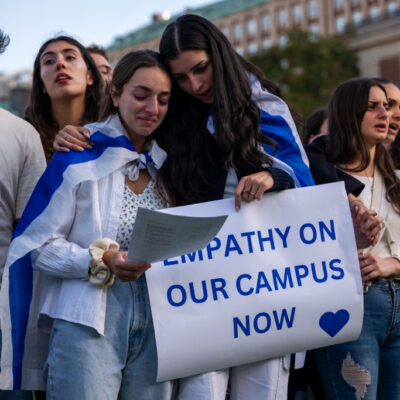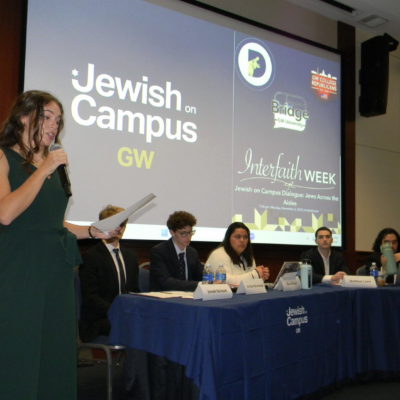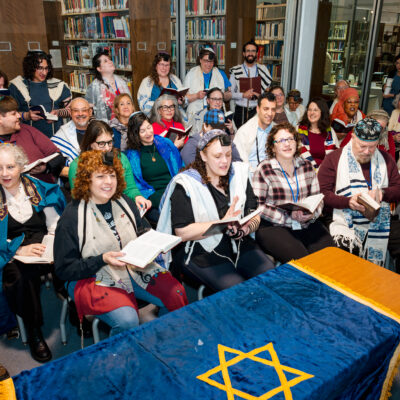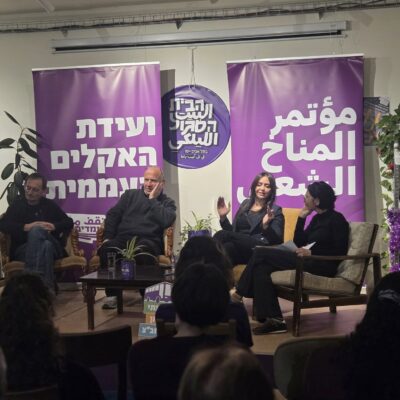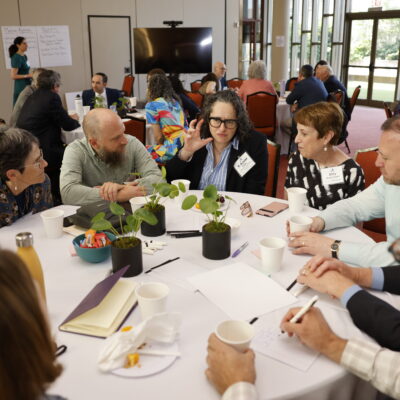Opinion
KNOW THYSELF
How Jewish identity is formed matters
In Short
We need to teach our children that Jewish joy and belonging is in fact an avenue for combating antisemitism and generating hope.
Psychoanalyst Erik Erikson wrote, “In the social jungle of human existence, there is no feeling of being alive without a sense of identity.” This statement is all the more true in the face of hate and bigotry: A rooted sense of self is critical to navigating social pressures as a minority identity. As Jewish students encounter rising antisemitic language and even physical violence in our world today, it is more important than ever to ground our youth in strong Jewish identities.
In building a strong sense of Jewish identity, our youth will not only have the ability to stand firm in the face of antisemitism but will also have the skills needed to resist the human tendency to fear or hate those who are different from them. Strong identity formation, through exploring cultural narratives and fostering self-awareness, grounds young folks in the resilience and moral courage needed to stand up to antisemitism and all forms of hate.
arthobbit/Getty Images
The hate that defines us
In their new book, What Jewish Looks Like, Liz Kleinrock and Caroline Kusin Pritchard wrote:
“Too many Jews have been told: ‘You don’t look Jewish!’ It begs the question, ‘What does Jewish look like?’ Well, there are over fifteen million Jews in the world, which means there are more than fifteen million ways to look and be Jewish. It can look like setting out menorahs on tribal land, adding kimchi to the seder plate, organizing for change, and living out loud.”
We often allow ourselves to be defined by what others think of us, of who they believe we should be. Others may have a vision of what a Jew is and superimpose that upon us. As Dara Horn writes in People Love Dead Jews, “My family’s identity was defined and determined by the opinions and projections of others… It doesn’t involve ‘intolerance’ or ‘persecution,’ at least not at first. Instead, it looks like Jews themselves are choosing to reject their own traditions. It is a form of weaponized shame.” Horn reflects on her own experience in her family: instead of facing outright persecution around their Jewish identity, they absorbed an insidious shame from the non-Jews around them, convincing them that there was something wrong with them, that by being different in their Jewishness they did not belong in the greater society.
The story of Chanukah is a historical example of this more sinister form of antisemitism, one where there was an attempt to destroy Jewish civilization through pressure to fit into a Hellenistic world. This type of antisemitism was also deployed in the USSR, a society that didn’t require Jews to convert to another religion but rather demanded that Jews shed their Jewishness in order to fit in. Today, we have seen this form of shaming in context of demands for Jews to denounce and shed the Zionist part of their identities in order to be accepted within progressive spaces.
Growing up in the 1980s, I remember the constant buzz in Jewish education that we needed Jewish kids to learn about the Holocaust so that they understood their obligation to remain Jewish so as not to let Hitler win. This became core to Jewish identity for many teens. But generating and growing an identity based on a negative — like how others have tried to destroy you — is harmful. The unintended impact of this approach was that my generation was forced to define ourselves as victims in relation to what we were fighting against instead of through the beauty of the Jewish life that we were striving for. I hope that we don’t make a similar mistake with the current generation. I hope that our Jewish youth today are not shaping their Jewish identities simply through the lens of fighting anti-Zionism. Can we instead help them foster a rich and vibrant Jewish life?
I believe we must shift from a defensive mode of combating antisemitism to helping our youth define their own Jewish identities by seeding Jewish pride, knowledge and connection to our civilization. We need to teach our children that Jewish joy and belonging is in fact an avenue for combating antisemitism and generating hope.
See me for who I am
As Jews begin to take ownership of their own identities and stop others from defining Judaism for them, the greater world will gain a better understanding of who we actually are — an incredibly diverse Jewish People culturally, religiously, linguistically, geographically, ethnically, and in so many other ways.
We need to avoid the pitfall that Yair Rosenberg, in his Atlantic article “How to Learn About Jews From Jews, Rather Than The People Who Hate Them,” points out: that “focusing on the negative ways that outsiders misrepresent Jews has the unfortunate effect of shrinking the Jewish experience to the hampered horizons of their haters. In actuality, Jews are a proud and diverse people who have thrived for millennia, and whose collective experience is far richer that simply surviving oppression.” Rather than learning about the Holocaust, which is now mandated in over 25 states, what would it look like for these states to instead mandate teaching about what it means to be Jewish and expose U.S. students to a people that make up less that .2% of the world’s population and yet have contributed so much throughout history? A means of exploring this could be through lessons such as What Does It Mean to Be Jewish from the nonprofit Facing History and Ourselves.
Phyllis Goldstein wrote in A Convenient Hatred, “Like other hatred, antisemitism is almost always a current event — one that is triggered by the fears and anxieties of the moment.” What people don’t have exposure to or an understanding of, they often fear. So let’s make sure that both Jews and non-Jews alike know what it means to be Jewish. Let’s make sure that Jews are the ones defining their own Jewishness and sharing this with the world rather than the other way around.
When I know myself, I can make room for you
There is an additional advantage in promoting positive Jewish identity among our youth. When humans are in fight or flight mode, they don’t have the bandwidth for much else. If Jewish youth define their identity through victimhood and see the world as being out to get them, they will be reluctant to engage with others who are different from themselves. However, when a person finds security and comfort in one’s own identity, they generally do not feel as threatened by the identity of others. Developing a strong sense of self promotes empathy and inclusivity. Jewish youth who feel confident in their Jewishness, are knowledgeable about their history and feel a sense of belonging within their heritage will have room for an openness to the identities of others who differ from them. Through this openness, Jewish youth can discover the importance of supporting others in our universal fight against bigotry and hate.
As playwright Eve Ensler put it, “Inclusion doesn’t come from refusing to acknowledge our distinctive experiences, and trying to erase them, in an attempt to pretend they don’t exist. Inclusion comes from listening to our differences and honoring the right of everyone to talk about their reality, free from oppression and bigotry and silencing.” We need to stop teaching tolerance of difference and rather teach the embracing of difference — I should treat you well not because you are the same as me, or even despite the differences between us, but rather because you are a human being who deserves respect and dignity. Part of what makes us human is our difference. Let’s provide our Jewish youth moral strength by enabling them to explore their cultural narratives and foster strong self-identities, where they can celebrate their difference rather than be shamed by it; and let’s enable non-Jews to learn about what it means to be Jewish from Jewish perspectives, and celebrate these differences rather than being fearful or intolerant of them. Only in doing these things will we begin to lay the foundations for a more inclusive world.
Rabbi Yehudah Potok is the senior director of the Jewish Education Program at Facing History and Ourselves. He brings over two decades of leadership in formal and experiential educational settings. He has written and lectured on various topics regarding organizational change, school culture, educational technology, contemporary antisemitism and Holocaust education.

 Add EJP on Google
Add EJP on Google
